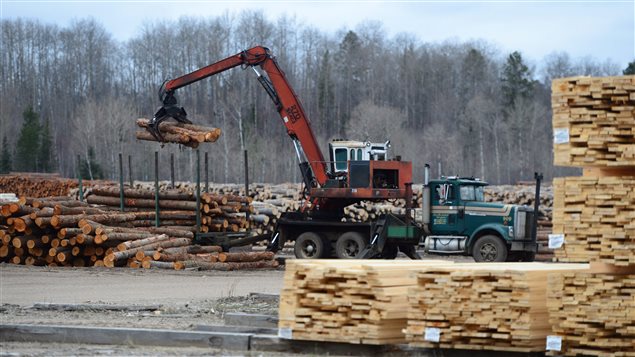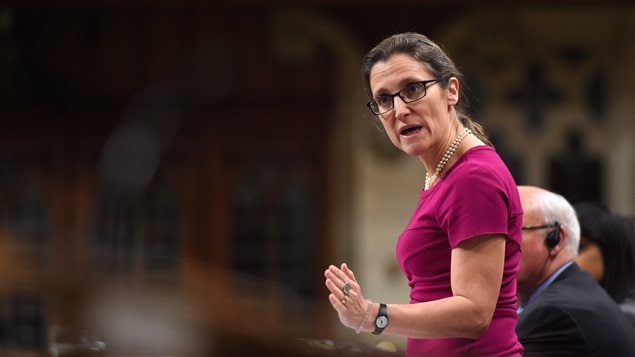Foreign Affairs Minister Chrystia Freeland says she is optimistic a new “win-win” softwood lumber deal can reached in the festering trade dispute between Canada and the United States that threatens to poison the relationship between the two North American neighbours.
Freeland says she has had “detailed and substantive” discussions with U.S. Commerce Secretary Wilbur Ross in recent days but the two sides are still far apart.
“We have made progress in our conversations, but we’re not there yet,” Freeland said in a teleconference call with reporters from Berlin where she attended the Women20 Summit.
President Donald Trump accused Ottawa of being “very rough” on the U.S. and slapped tariffs on imported Canadian lumber on Tuesday. He also denounced Canada’s dairy supply management system as a “disgrace” that is costing American farmers their livelihoods.
The U.S. Commerce Department said it would impose countervailing duties on Canadian softwood lumber of between 3 per cent and 24 per cent.
Blame it on NAFTA?

Ross said the disputes over lumber and milk were evidence that the North American Free Trade Agreement (NAFTA) was not working, even though neither softwood lumber nor Canada’s largely closed dairy market were ever covered by NAFTA.
Trump has threatened to scrap the free trade agreement between Canada, U.S. and Mexico if it can’t be renegotiated.
“Canada is ready to come to the table at any time,” Freeland said.
However, it’s important to bear in mind that NAFTA negotiations have not started yet, she said.
The American side has signalled that it intends to trigger a 90-day consultation period. Discussions on renegotiating NAFTA would begin only after that, Freeland said.
“We’re pretty far from that conversation at this point,” she added.
The customer is always right?
Canada is the No. 1 consumer of U.S. exports, Freeland said.
“We are America’s biggest market,” Freeland said. “What everyone in the private sector knows is you need to treat your customers well, and you should treat your number one customer particularly well.”
The U.S. is dependent on Canadian softwood because its own industry can’t meet its domestic demand, Freeland said.
“Lumber prices are high right now, and the reality is the United States needs our lumber,” she said. “Middle class Americans who want to buy a house need Canadian lumber to do that.”
That’s the reason why despite the repeated cycles of disputes over the past four decades the two sides have always come to a deal, she said.
“We believe that there is a good win-win negotiated outcome that is possible here,” Freeland said. “But we are also absolutely prepared to fight this out in the courts and we’re only going to do a deal that’s good for Canada.”







For reasons beyond our control, and for an undetermined period of time, our comment section is now closed. However, our social networks remain open to your contributions.